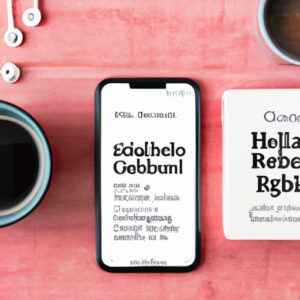The Role of Non-Verbal Communication in Your Podcast Interviews
Podcasting has become an integral part of the media industry, and it’s no wonder why. In this age of information overload, people love to listen to podcasts while they commute, work, or relax. The beauty of a podcast is that it’s entirely audio-based, and you can listen to it while doing other things. But as a podcast host or guest, have you ever considered the role of non-verbal communication in your interviews?
What is Non-Verbal Communication?
Non-verbal communication refers to the messages that we send without using words. These can include facial expressions, body language, tone of voice, and even silence. It’s estimated that up to 93% of human communication is non-verbal, making it a crucial factor in how we interpret and convey messages, emotions, and intentions.
Why is Non-Verbal Communication Important in Podcast Interviews?
As a podcast host or guest, your words are undoubtedly essential, but how you deliver those words is just as crucial. Non-verbal communication can affect how your audience perceives you and your message. For example, if you’re talking about a serious topic, but your tone of voice is upbeat or your facial expressions suggest you’re not taking it seriously, the audience may not take you seriously either.
Moreover, non-verbal cues can also help you build rapport with your guest or your audience. For example, nodding your head, maintaining eye contact, and leaning forward can signal that you’re engaged, interested, and empathetic.
How to Improve Your Non-Verbal Communication in Podcast Interviews
Like any skill, improving your non-verbal communication takes practice. Here are a few tips to help you get started:
1. Be Mindful of Your Body Language
Pay attention to your posture, gestures, and facial expressions. Are you slouching or fidgeting? Are you smiling or frowning? Try to keep your body open and relaxed, and match your gestures and expressions with your words.
2. Use Your Voice Effectively
Your tone of voice can convey a lot of information about your emotions, attitude, and confidence. Speak clearly and confidently, vary your pitch and pace, and use pauses and inflections to add emphasis or convey meaning.
3. Listen and Respond Actively
Non-verbal communication is a two-way street. Pay attention to your guest’s non-verbal cues as well, and respond accordingly. If they seem uncomfortable or hesitant, give them space to speak or change the subject. If they’re enthusiastic or passionate, show your support and encouragement.
In conclusion, non-verbal communication plays a vital role in podcast interviews. By being mindful of your body language, using your voice effectively, and listening actively, you can improve your communication skills and engage your audience more effectively. Happy podcasting!






